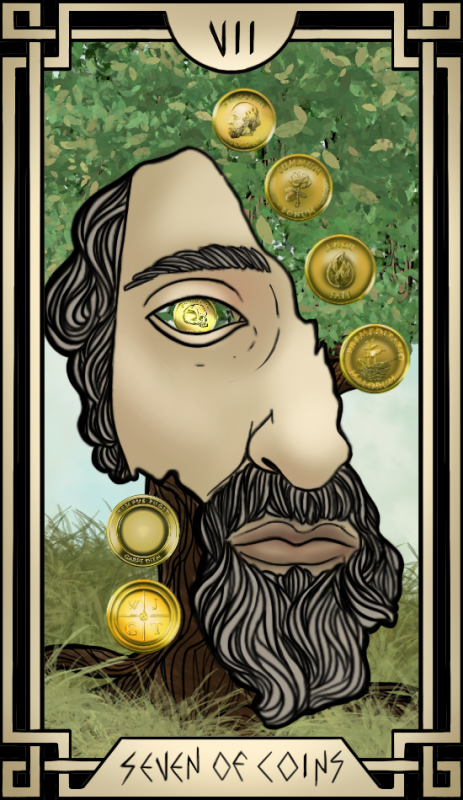Ancient Greece, Ancient Philosophy, Stoic Tarot, Stoicism
Marcus Aurelius lived through one of the worst pandemics. Here’s our thoughts.
Marcus Aurelius’ head piece surrounded by 7 stoic coins.

The Roman emperor Marcus Aurelius,during the last 14 years of his life. he faced one of the worst plagues in European history. The Antonine Plague was probably caused by a strain of the smallpox virus. It’s estimated to have killed up to 5 million people, possibly including Marcus himself.
In the middle of this plague, Marcus wrote a book, known as The Meditations, which records the moral and psychological advice he gave himself at this time. He frequently applies Stoic philosophy to the challenges of coping with pain, illness, anxiety and loss. It’s no stretch of the imagination to view The Meditations as a manual for developing precisely the mental resilience skills required to cope with a pandemic.
Stoics believe that our true good resides in our own character and actions. Stoics remind us to distinguish between what’s “up to us” and what isn’t. Modern Stoics tend to call this “the dichotomy of control” and many people find this distinction alone helpful in alleviating stress. What happens to you is never directly under your control, never completely up to you, but your own thoughts and actions are – at least the voluntary ones. The pandemic isn’t really under our control but the way we behave in response to it is.
"If you are pained by any external thing, it is not this thing that disturbs you, but your own judgment about it. It is in your power to erase this judgment about it. If anything in your own nature gives you pain, you are who hinders… Share on XThe Seven of coins represents stopping to look around you and appreciate what you’ve created. It symbolizes the need to periodically review your progress; what you have achieved, and what you are still working toward. The road may not have been easy, and the work may not be over, but your foundation is firmly rooted. This card reminds you to stop ignoring or minimizing your accomplishments!
In the Seven of Coins Tarot card, each coin carries a philosophical meaning it. One of our personal favourites, “Amor Fati”, a Latin phrase that may be translated as “love of fate”. It is used to describe an attitude in which one sees everything that happens in one’s life, including suffering and loss, as good or, at the very least, necessary. Amor Fati means the welcoming of all life’s experiences as good.
